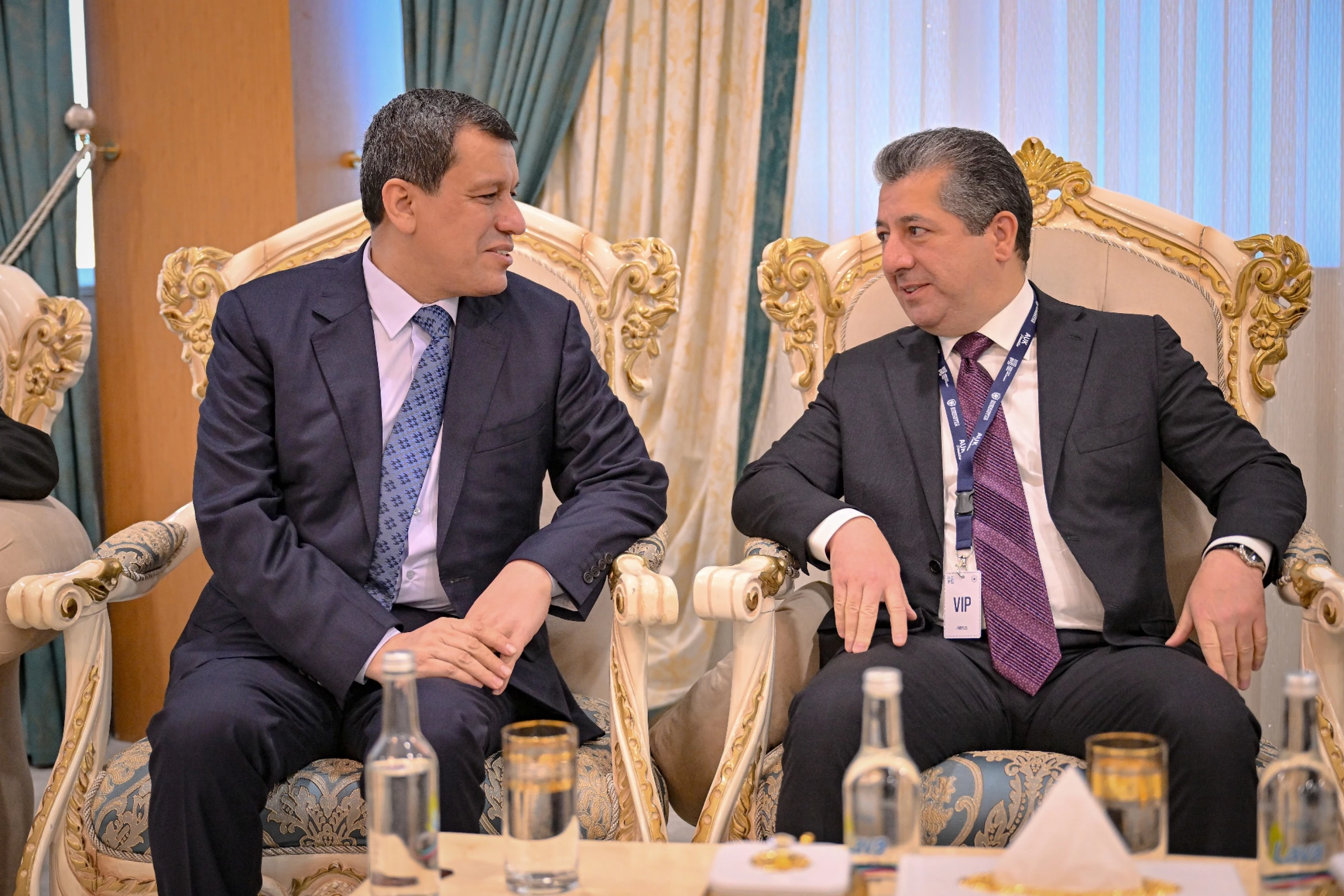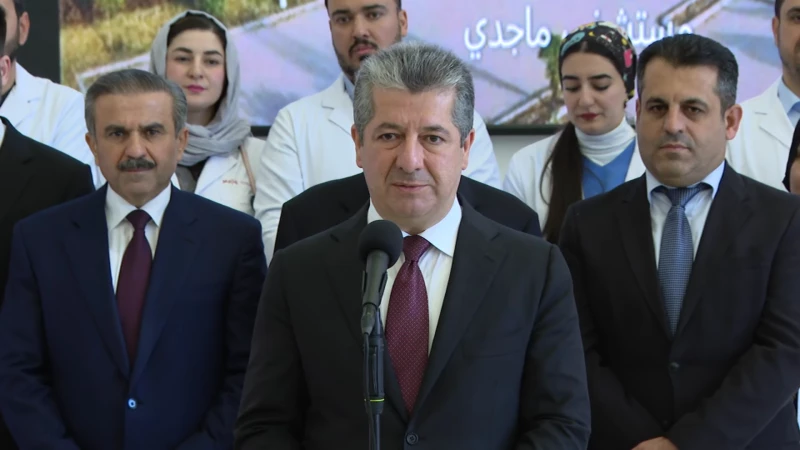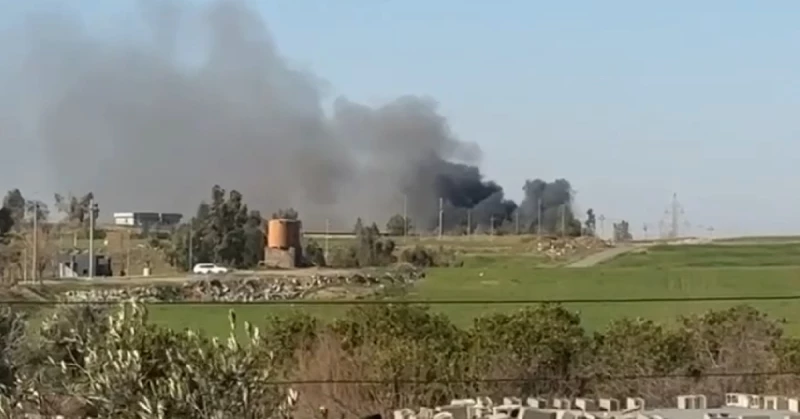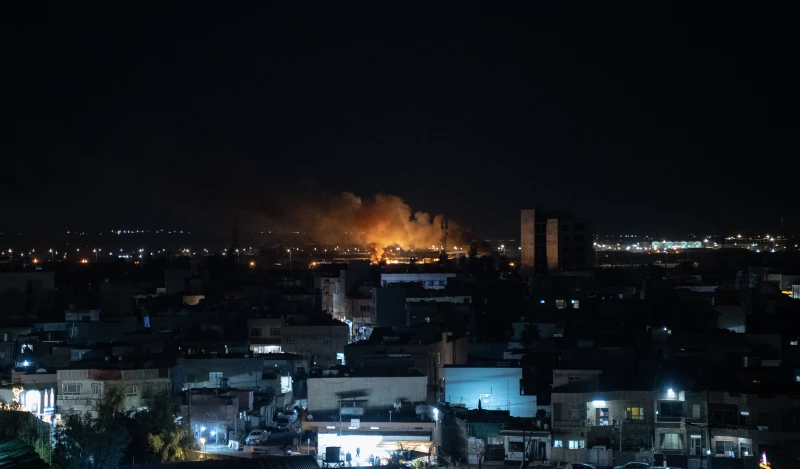ERBIL, Kurdistan Region of Iraq - Chief of the Kurdish-led Syrian Democratic Forces (SDF) Mazloum Abdi on Wednesday met with top Kurdistan Region officials in Duhok, discussing the latest situation in Syria and the region, the dangers of a resurgence of the Islamic State (ISIS), and securing the rights of Kurds
Abdi was in Duhok for the Middle East Peace and Security (MEPS) conference where he was welcomed by Kurdistan Region Prime Minister Masrour Barzani. Following the conference he met with President of the Kurdistan Democratic Party (KDP) Masoud Barzani and Kurdistan Region President Nechirvan Barzani.
During his meeting with Masoud Barzani, he was accompanied by President of the Kurdish National Council (ENKS/KNC), Kurdish politician and former lawmaker in Turkey Osman Baydemir, and several other figures from northeast Syria (Rojava) and southeast Turkey (Bakur).
“President Barzani indicated that it is necessary for the Kurdish issue to be resolved in a democratic and peaceful manner within the framework of the new Syria, and that the mistakes of the past be addressed and not repeated,” read a statement from Barzani Headquarters.
“President Barzani emphasized the sustainability, stability, and unity of Kurdish political forces and parties, and indicated that the rights of the Kurdish people must not be compromised,” it added.
For his part, Abdi thanked Masoud Barzani’s role towards uniting the Kurdish parties in Rojava over the past years and the support of the Kurdistan Region in defeating terrorism.
The SDF is the US-led global anti-ISIS coalition’s main partner on the ground in Syria and the de facto army in Rojava. It fought the lion's share of the battle against ISIS, enduring severe losses.
On March 10, SDF chief Mazloum Abdi and Syrian President Ahmed al-Sharaa signed an agreement that would see the Kurdish-led forces and institutions in northeast Syria integrate into the Syrian state apparatus.
The talks halted after the two sides clashed several times with both trading blame for the escalations. Following a ceasefire, the SDF has submitted the names of numerous commanders to be integrated into the Syrian defence ministry.
Later in the day, Abdi also met Kurdistan Region President Nechirvan Barzani where they exchanged views on the SDF’s talks with Damascus, terrorism threats and confronting ISIS.
“President Nechirvan Barzani emphasized the necessity of unity among Kurdish parties and resolving their issues through dialogue and agreement, in order to protect the rights of the Kurdish people in Syria,” the Kurdistan Region Presidency said in a statement.
Kurds and other minorities in Syria have repeatedly called for a decentralized governance in Syria, a request rejected by Damascus as attempts to divide the country.
“We believe that after 15 years of war, Syria will not have a centralized system like the Baathist regime,” Abdi said during his speech at MEPS, stressing that the Bashar al-Assad regime fell because people fought against centralization.
Assad was toppled in December by a group of rebels spearheaded by Hay’at Tahrir al-Sham (HTS), which was led by current Syrian President Ahmed al-Sharaa.
Representatives from different communities of Syria participated in a conference in Hasakah in August, organized by Kurdish authorities, during which they called for a decentralized state. Syrian government officials slammed the results of the conference a day later, saying the event violated previous agreements.
In late April, Kurdish factions gathered for a Kurdish Unity Conference that saw the endorsement of a 26-article declaration calling for a decentralized Syria and the unification of Kurdish regions within a federal framework.



 Facebook
Facebook
 LinkedIn
LinkedIn
 Telegram
Telegram
 X
X


